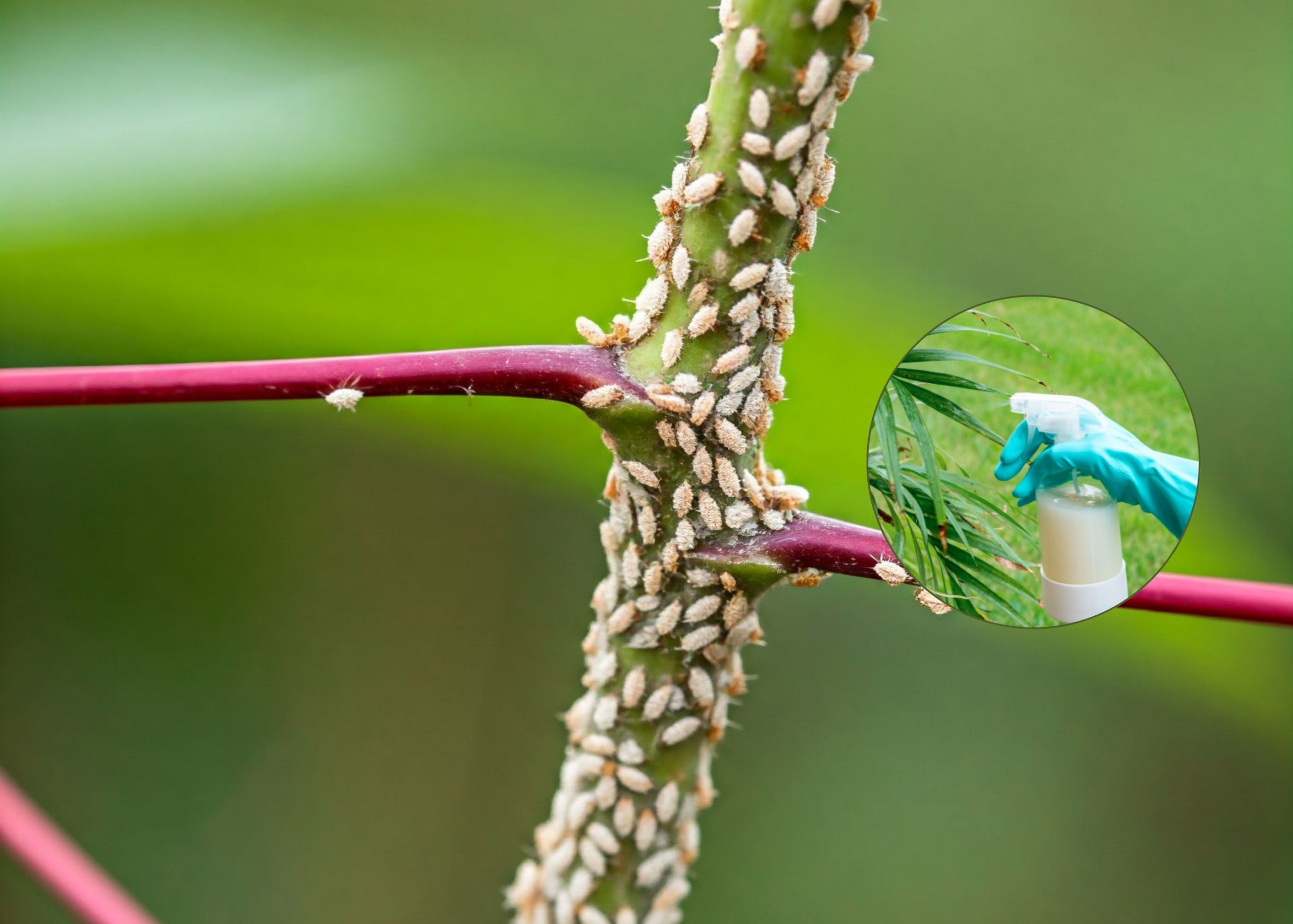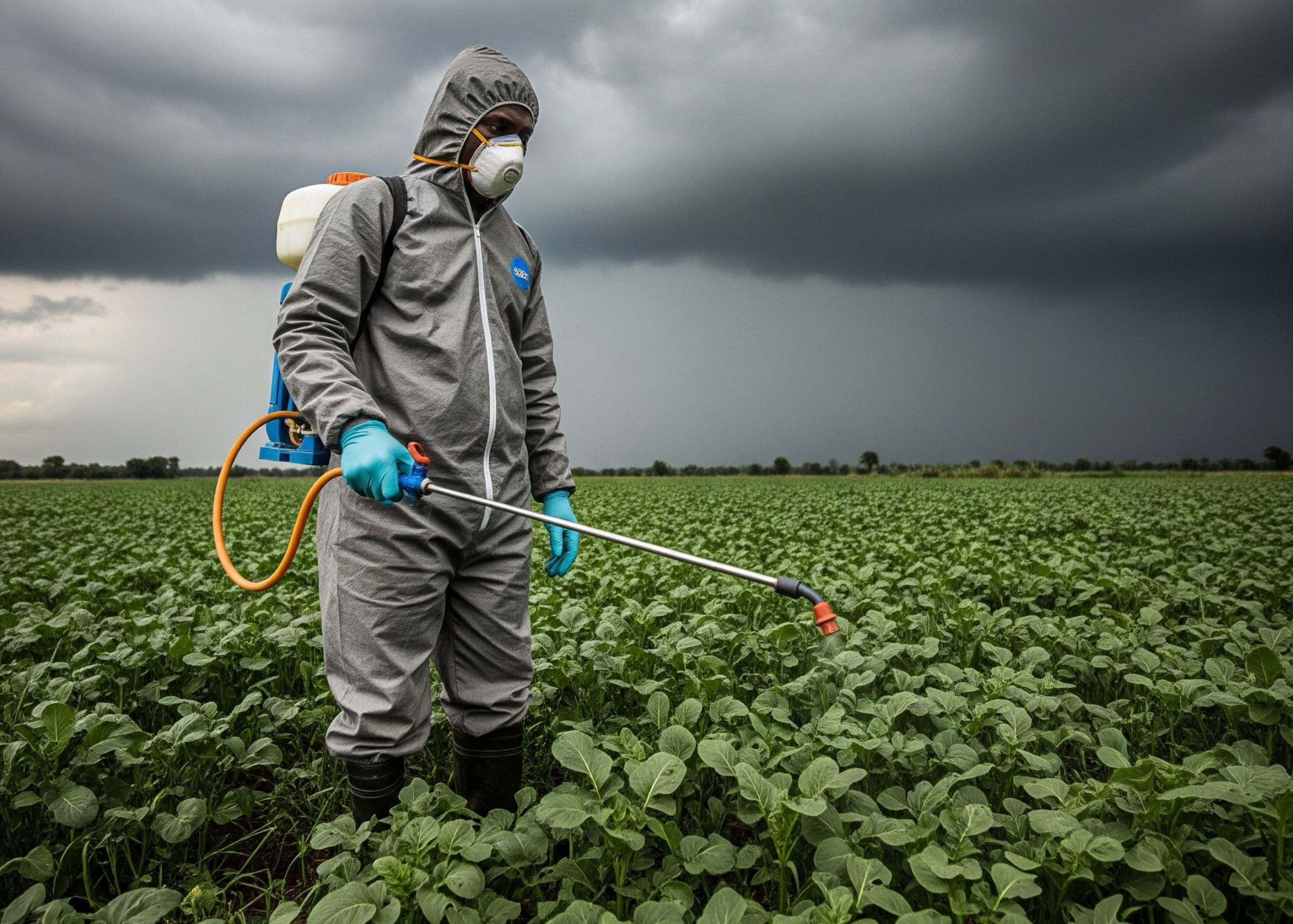It’s time to prepare your cassava farm for the next planting season. You’re not alone if your last harvest wasn’t as bountiful as you’d hoped. Maybe you’ve seen this before: one sunny morning, you walk into your farm and notice the leaves on some plants curling, turning yellow, and covered in odd spots. You think, “Hmm, maybe the soil is tired,” so you add fertiliser but the plants don’t get better.
Confused, you ask a fellow farmer, who shakes his head and says, “That’s cassava mosaic virus, it is caused by whiteflies.”
If this sounds familiar, don’t worry. This article breaks down what the cassava mosaic virus is, how whiteflies spread it, and most importantly, what you can do to protect your precious cassava crops.
What is the cassava mosaic virus?
Cassava mosaic virus is a disease that causes their leaves to become wrinkled, yellow, and weak. Worst of all, it stunts the growth of cassava roots, leaving you with smaller yields, and less food and income. The virus doesn’t travel by itself; it needs carriers. And guess what? That’s where whiteflies come into the picture.
Whiteflies are tiny pests, smaller than a grain of rice but don’t let their size fool you. These little insects live under cassava leaves and suck the plant’s sap, the lifeblood of any plant. While they’re at it, they pick up the virus from infected plants and carry it to healthy ones, spreading the disease like wildfire.
Now let’s dive into the 7 ways these sneaky pests spread the virus.
7 ways whiteflies spread cassava mosaic virus
1. By feeding on cassava leaves
Whiteflies love to bite into cassava leaves to feed on sap. If they land on an infected plant, they pick up the virus. When they fly to another plant to feed, they transfer the virus, just like how a cold spreads from person to person.
2. By reproducing quickly
Whiteflies reproduce at an alarming rate. A single female can lay up to 200 eggs on cassava leaves, and within days, the eggs hatch into baby whiteflies. These young ones waste no time, they start feeding, spreading the virus to more plants. Think of it as a never-ending pest party.
3. By riding the wind
Whiteflies are so lightweight that even a gentle breeze can carry them to neighbouring farms. Your farm might be spotless, but if your neighbour’s field is infected, the wind can deliver trouble right to your doorstep.
4. By attacking young plants
Whiteflies target young, tender plants because they’re easy to feed on. These plants are still growing and don’t have the strength to fight off an attack. If infected early, they never have a chance to thrive.
5. By hiding on other plants
Whiteflies are crafty. When they’re not feasting on cassava, they hide on nearby crops like tomatoes, okra, or castor beans. These plants act like safe houses, helping the whiteflies survive and continue their destructive work.
6. By escaping predators
In nature, birds and insects like ladybugs feed on whiteflies. But if your farm lacks these natural predators, whiteflies multiply unchecked, spreading the virus far and wide.
7. By human activities
Farmers sometimes unknowingly help spread the virus. If you use cassava stems from an infected farm, you’re planting the virus right into your soil. That’s why it’s so important to use disease-free planting materials.
How to protect your cassava farm
Don’t lose hope. There are practical steps you can take to fight back against whiteflies and Cassava Mosaic Virus. Here are some tips:
- Plant Healthy Stems: Only use cassava stems from trusted, disease-free farms.
- Inspect Your Plants Regularly: Take a close look at your cassava plants, especially under the leaves, for whiteflies or signs of the virus.
- Remove Infected Plants: If you spot sick plants, don’t wait. Uproot and burn them to prevent the virus from spreading.
- Use Neem Oil: Neem oil is a natural way to repel whiteflies. Spray it on your cassava plants to keep pests at bay.
- Set Up Sticky Traps: Yellow sticky traps can help catch whiteflies and reduce their numbers.
- Encourage Natural Predators: Create an environment where birds and helpful insects, like ladybugs, can thrive and eat the whiteflies.
Key takeaway
Cassava is a lifeline for many families, providing food and income. Losing your crops to the cassava mosaic virus can feel devastating, but with the right knowledge, you can protect your farm. Be proactive, inspect your plants, use healthy stems, and share this advice with your fellow farmers.



